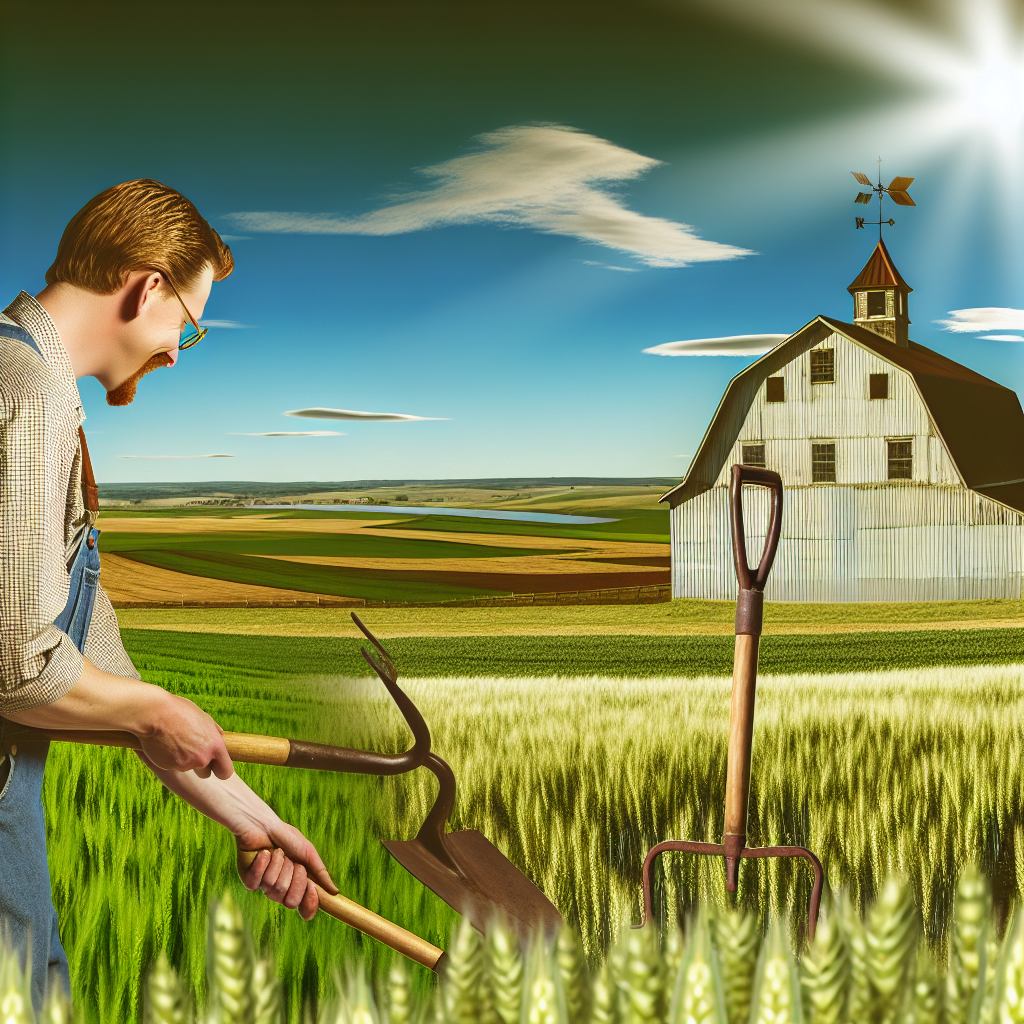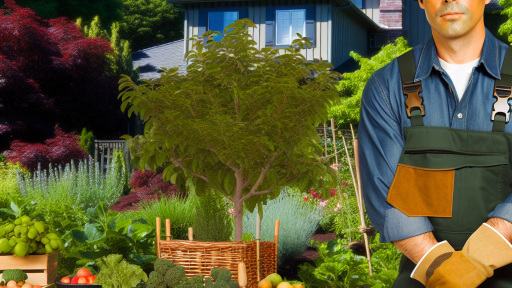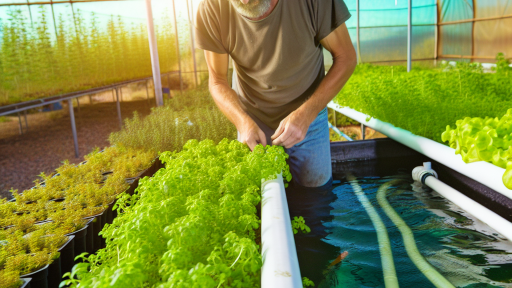Introduction to Container Gardening and Its Benefits
Container gardening offers a versatile way to grow plants.
It allows gardeners to cultivate plants in limited spaces.
Many urban environments benefit from this method.
Also, it provides opportunities for growing food at home.
Flexible Growing Options
One significant benefit of container gardening is its flexibility.
Gardeners can choose from a wide variety of containers.
This method allows for the growth of herbs, vegetables, and flowers.
Additionally, it accommodates various styles and aesthetics.
Consequently, container gardens can enhance any outdoor space.
Improved Accessibility and Mobility
Container gardening makes gardening accessible to everyone.
This approach is ideal for those with mobility issues.
Moreover, it enables easy rearrangement of plants.
Gardeners can adjust their layouts based on sunlight and space.
Thus, they can create an optimal growing environment.
Efficient Use of Resources
Container gardening promotes efficient resource management.
Transform Your Agribusiness
Unlock your farm's potential with expert advice tailored to your needs. Get actionable steps that drive real results.
Get StartedIt requires less soil than traditional gardening methods.
This efficiency helps conserve water and decreases waste.
Additionally, it simplifies the pest management process.
As a result, maintaining healthy plants becomes easier.
Extended Growing Season
Container gardening can help extend the growing season.
Gardeners can move containers to warmer areas when needed.
This ability allows for earlier planting and later harvesting.
Consequently, it increases the variety of crops that can be grown.
In colder climates, this is particularly advantageous.
Essential Gardening Tools for Beginners
Basic Hand Tools
Hand tools are the foundation of any gardener’s toolkit.
A sturdy trowel helps in planting and digging up soil.
Additionally, a hand cultivator breaks up compacted soil effectively.
A pair of quality pruning shears ensures clean cuts on plants.
Having gloves protects your hands from dirt and thorns.
Watering Equipment
Proper watering is crucial for thriving plants.
A watering can with a detachable spout offers versatility.
You may also want a hose with an adjustable nozzle for ease.
Moreover, consider a drip irrigation system for efficiency.
Soil and Plant Care Tools
Soil health is vital for productive gardening.
A soil test kit helps you understand pH levels and nutrients.
A compost bin encourages recycling of kitchen scraps.
Using a hand rake can assist in leveling and aerating your planting area.
Storage Solutions
Organizing tools promotes an efficient gardening experience.
A tool shed or storage bench helps keep everything in order.
Showcase Your Farming Business
Publish your professional farming services profile on our blog for a one-time fee of $200 and reach a dedicated audience of farmers and agribusiness owners.
Publish Your ProfileConsider using racks or hooks for hanging tools.
Labeling boxes or containers can speed up retrieval processes.
Protective Gear
Safety should be a priority while gardening.
A wide-brimmed hat provides sun protection during long sessions.
Long sleeves and durable footwear keep you safe from injuries.
Lastly, wearing knee pads can ease the strain of kneeling.
Additional Helpful Tools
Some tools make gardening more enjoyable and efficient.
A garden fork aids in loosening soil and mixing amendments.
A wheelbarrow can transport heavy items across your garden.
Consider a garden planner app to track your gardening progress.
Advanced Tools for Experienced Container Gardeners
Precision Watering Systems
Experienced gardeners benefit from precision watering systems that conserve water efficiently.
Drip irrigation systems deliver water directly to the root zone.
This prevents overwatering and promotes healthier plants.
Using sensors can automate irrigation, saving both time and effort.
High-Quality Soil Testing Kits
Soil quality plays a crucial role in plant health.
Advanced soil testing kits provide accurate readings of pH and nutrient levels.
Understanding soil conditions helps gardeners make informed adjustments.
Additionally, this knowledge supports optimal crop performance.
Ergonomic Hand Tools
Ergonomic hand tools reduce strain during long gardening sessions.
Consider using trowels and pruners designed with comfort in mind.
These tools enhance grip and leverage, making tasks easier.
As a result, gardeners can enjoy longer, more productive time outdoors.
Robust Planters with Self-Watering Features
Self-watering planters simplify plant care significantly.
They provide a consistent moisture level for plants, reducing stress.
These innovative containers help busy gardeners maintain healthy growth.
Moreover, they minimize the frequency of watering sessions.
Quality Pest Management Solutions
Advanced pest management tools help protect container gardens from infestations.
Integrated pest management (IPM) strategies prioritize eco-friendly solutions.
Using natural predators can reduce the reliance on chemical pesticides.
Also, monitoring traps assist in early detection of pests.
Innovative Growth Lights
For year-round gardening, consider investing in LED grow lights.
These lights provide ample light spectrum for all growth stages.
They are energy-efficient and generate minimal heat.
Consequently, plants thrive indoors even during the darkest months.
Reflective Mulch Sheets
Reflective mulch sheets enhance light availability for plants.
They improve growth rates by directing sunlight towards foliage.
This technique also helps suppress weed growth.
Gardeners can easily apply these sheets around their container plants.
Smart Garden Monitoring Systems
Smart garden monitoring systems offer real-time data on plant health.
These systems track moisture levels, temperature, and humidity.
Showcase Your Farming Business
Publish your professional farming services profile on our blog for a one-time fee of $200 and reach a dedicated audience of farmers and agribusiness owners.
Publish Your ProfileAlerts notify gardeners when conditions change or need attention.
This technology allows for more precise adjustments in care routines.
Delve into the Subject: Integrating Heirloom Crops into Modern Farming
Soil and Potting Mix: Tools for Optimal Growth
Understanding Your Soil
Soil quality directly affects plant health and growth.
Begin by testing your soil for pH and nutrient levels.
Use simple kits that offer quick results.
Once you know the composition, amend the soil as necessary.
Essential Soil Amendments
Organic compost enriches soil with nutrients.
Consider adding worm castings for beneficial microorganisms.
Peat moss can enhance moisture retention in the mix.
Additionally, vermiculite improves aeration and drainage.
Selecting the Right Potting Mix
Choose a potting mix designed specifically for container gardening.
Ensure it contains elements for water retention and drainage.
Look for mixes with perlite or pumice for better aeration.
Quality mixes promote healthy root development.
Tools for Mixing Soil
A reliable wheelbarrow makes transporting soil easy.
Use a sturdy shovel for mixing and transferring materials.
A trowel is essential for smaller tasks and planting.
Furthermore, garden gloves protect your hands while working.
Maintaining Soil Health
Regularly check soil moisture levels to prevent overwatering.
Consider adding mulch to control moisture and suppress weeds.
Rotate crops to maintain soil fertility and structure.
Finally, apply organic fertilizers based on soil tests.
Uncover the Details: Design Ideas for Efficient Hydroponic Systems
Watering Tools: Efficient Systems and Their Importance
Understanding the Need for Watering Tools
Watering tools play a crucial role in container gardening.
They ensure plants receive adequate moisture to thrive.
Without proper watering, plants can suffer from stress.
Moreover, efficient watering promotes healthy growth.
For this reason, choosing the right tools is essential.
Types of Watering Tools
Several types of watering tools cater to different gardening needs.
Additionally, each tool provides unique benefits.
- Watering Can: Perfect for small to medium gardens.
- Garden Hose: Ideal for larger areas with flexible reach.
- Soaker Hoses: Efficient for deep watering directly at the soil level.
- Drip Irrigation Systems: Offer precision watering to individual plants.
The Benefits of Efficient Watering Systems
Efficient watering systems save time and effort.
They allow you to water multiple plants at once.
Consequently, they reduce water waste significantly.
Additionally, these systems minimize the risk of overwatering.
Conserving Water
Water conservation is a critical aspect of gardening.
Using efficient watering tools helps preserve this vital resource.
Moreover, it lowers overall gardening costs by reducing water bills.
Improving Plant Health
Consistent watering promotes healthier plants.
Efficient systems deliver water directly to the roots.
Showcase Your Farming Business
Publish your professional farming services profile on our blog for a one-time fee of $200 and reach a dedicated audience of farmers and agribusiness owners.
Publish Your ProfileThis direct approach enhances nutrient absorption.
As a result, plants grow sturdier and more resilient.
Choosing the Right Watering Tool
Selecting the appropriate tool requires careful consideration.
First, assess the size and type of your garden.
Next, think about your watering habits and schedule.
Finally, weigh the pros and cons of each tool.
This process will ensure you choose wisely.
Gain More Insights: Maintaining Water Quality in Aquaponics

Fertilization Tools: Types and How to Use Them
Understanding Fertilization Tools
Fertilization tools help optimize plant growth and soil health.
They assist in the effective application of nutrients.
Using the right tools ensures plants receive balanced nourishment.
Types of Fertilization Tools
Several types of fertilization tools are essential for effective gardening.
Each tool serves a unique purpose in the fertilization process.
- Spreader: Ensures even distribution of granular fertilizers.
- Fertilizer Injector: Delivers liquid fertilizers directly to roots.
- Soil Test Kit: Measures nutrient levels and pH balance.
Using Fertilizers Effectively
Understanding how to use each tool is crucial for success.
Always read the instructions provided with fertilizers.
Start by testing the soil and adjusting the fertilizer type.
Applying Granular Fertilizers
For granular fertilizers, set the spreader to the right setting.
Walk in overlapping rows to ensure full coverage.
Applying Liquid Fertilizers
With liquid fertilizers, mix according to package instructions.
Use the injector to place nutrients at the root zone.
Maintenance of Fertilization Tools
Regular maintenance of tools ensures longevity and effectiveness.
Clean spillages immediately to avoid corrosion or damage.
Inspect tools before and after each use for any necessary repairs.
Gain More Insights: Heirloom Gardening Techniques for Small Farms
Pruning and Maintenance Tools for Container Plants
Essential Pruning Tools
Pruning shears are a must-have for any gardener.
Look for sharp, lightweight shears for ease of use.
Anvil pruners offer strength for cutting thicker stems.
Scissor-type pruners provide precision for delicate tasks.
Invest in a good pair of loppers for larger branches.
Additionally, a pruning saw is useful for very thick limbs.
Maintenance Tools for Container Gardens
Watering cans are essential for plant hydration.
Select a can with a comfortable handle for ease of use.
Consider a hose with a spray attachment for flexibility.
Soil moisture meters help gauge when to water.
Fertilizer tools, like spreaders, aid in plant nutrition.
Cleaning Tools for Container Plants
A small broom is ideal for keeping your gardening area tidy.
Use a trowel for removing debris from pots and containers.
Gardening gloves protect your hands while handling plants.
Additional Useful Tools
Labels help identify plant varieties easily.
Garden journals keep track of plant growth and care routines.
Showcase Your Farming Business
Publish your professional farming services profile on our blog for a one-time fee of $200 and reach a dedicated audience of farmers and agribusiness owners.
Publish Your ProfileInvest in plant supports to prevent leaning or falling over.
Lastly, a good kneeler or seat can make gardening more comfortable.
Pest Control Tools and Techniques for Container Gardens
Understanding Pests in Container Gardens
Pests can quickly ruin your container garden.
It’s essential to identify common pests early.
Common pests include aphids, spider mites, and whiteflies.
Regularly inspect your plants for signs of infestation.
Essential Pest Control Tools
Having the right tools makes pest control easier.
- Handheld sprayer helps apply pest control solutions effectively.
- Garden gloves protect your hands while handling plants.
- Sticky traps capture flying insects efficiently.
- Neem oil spray serves as a natural pesticide.
Natural Pest Control Techniques
Utilizing natural methods reduces chemical use.
Companion planting works wonders for pest management.
Planting marigolds can deter nematodes and aphids.
Introduce beneficial insects to your garden.
Ladybugs and lacewings consume harmful pests.
Chemical Pest Control Solutions
Sometimes, chemical solutions are necessary.
Always read labels carefully before use.
Select targeted pesticides to minimize harm to beneficial insects.
Apply pesticides during the evening to reduce sun impact.
Follow application instructions for safety and effectiveness.
Regular Maintenance and Monitoring
Regular maintenance keeps pests at bay.
Water your plants early in the day.
Keep the garden clean by removing debris.
Rotate crops yearly to disrupt pest life cycles.
Monitor plants regularly for changes in health.
Additional Resources
Starting Seeds for the Flower Farm — Heirloom Soul Florals
What to make of this article: Urban agriculture has higher carbon …




